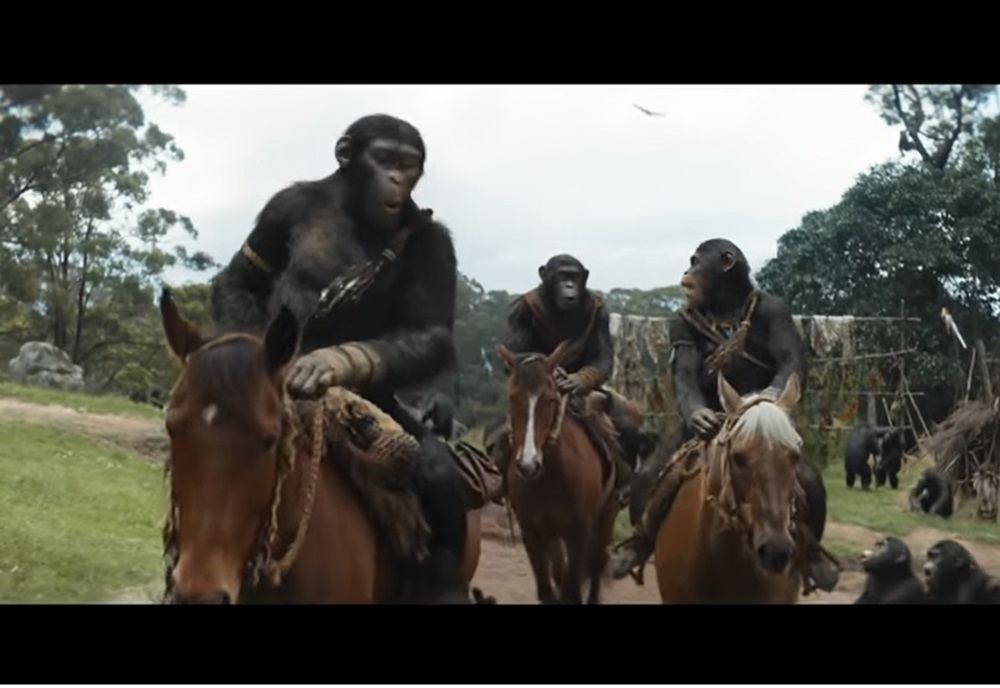MAY 18 — In this age of sequels, remakes, reboots and shared movie universes, it’s too easy to become disillusioned by the whole concept of franchise filmmaking and bemoan the slow death of original intellectual properties when it comes to big budget films and blockbusters.
From the point of view of movie studios and financiers, it’s kind of understandable that they’d choose to walk this path as franchise films are, more often than not, guaranteed to become box-office successes because there’s already a built-in fanbase all ready to devour every new film.
From the point of view of moviegoers, however, there will always come a point in a franchise’s lifespan that things will start to feel stale and feel like they’ve outlasted their welcome.
Just look at the apathy surrounding the release of most new superhero movies nowadays, whether they’re from Marvel or DC, as proof of how dangerously stale things can be for franchise filmmaking, with storylines and formulas repeated ad nauseum.
But just like how franchises can be born out of very different circumstances, like how the Fast & Furious franchise only really became a global phenomenon because of its third movie, Tokyo Drift, and not because of the first two underwhelming ones, or how the Undisputed sequels, especially the second and third movies, turned it into a franchise because of how much people loved the villain in its second film, Yuri Boyka, which turned Scott Adkins into an undisputed DTV star, or how Riddick is still an ongoing franchise despite the underwhelming financial performance of its sequels and how it all originated from the low budget yet surprisingly efficient Pitch Black, people love franchises for all sorts of reasons.
It’s really more about how the franchises’ producers recognise and identify what made people love the films and connect the right writers and directors to deliver them in an entertaining and coherent manner.
Audiences are intelligent enough to walk into franchise films and not expect any groundbreaking new advances in filmmaking, we just want to be entertained watching characters we already love do their thing, without getting our intelligence insulted, and I’m so happy to report that I got that experience, twice, in the cinema last weekend!

Kingdom of the Planet of the Apes
Outside of the James Bond franchise, the Planet of the Apes franchise is probably the longest running one we have today, rebooted twice, with this new one from The Maze Runner director Wes Ball very likely the start of a new trilogy, just like how Rise of the Planet of the Apes became the start of a trilogy focusing on the character of Caesar.
That Caesar trilogy is probably the finest franchise of this century, competing very closely with the John Wick franchise for that title, and is much loved by both audiences and film critics because they’re not only entertaining, but also thoughtful and insightful about the human condition (which of course is represented by the apes).
Ball proves an inspired choice for this new film, giving the audience a new character to root for, Noa.
Along with his friends Anaya and Soona, Noa is part of a tribe of chimpanzees who call themselves the Eagle Clan, because each of them will be raising an eagle of their own when they come of age.
Conflict arises when a female human, Mae, comes into Noa’s orbit, and very soon after, a villainous clan of masked apes led by Proximus Caesar, who twists the teaching of the now legendary Caesar to rule and enslave other apes.
Filled with plenty of thrilling action set-pieces, the film becomes extra lovely because of how it approaches the civil rights allegory that’s been part and parcel of this franchise since its beginning in 1968, and once you’ve witnessed that scene between Noa and Mae towards the end of this film, you might even begin to apply those same allegorical ideas to things that have been happening in our beloved Malaysia as well.
This, surely, is one of the best films of 2024.
The Roundup 4: Punishment
When The Outlaws was first released in 2017, I don’t think anyone expected that it would morph into The Roundup franchise, that we would have the fourth film in 2024, and that it would become the most successful Korean franchise ever, with it becoming the first Korean franchise to surpass 40 million admissions in Korea, as of this past Monday.
Starring the lovable Ma Dong Seok (aka Don Lee), it is a franchise with the simplest of formulas — let Don Lee play the good-hearted tough cop who will slap and punch his way through an army of bad guys in order to ensure that justice prevails — and simply coast through the sheer charisma and good humour that comes with the Don Lee persona, the one that the whole world fell in love with in Train To Busan.
That’s all there is to this franchise, with only the locations and the bad guys being the needed variations for the films’ producers to knock out a new movie every two or so years, and watch as at least 10 million admissions pour in per movie, with this one already reaching that mark after just 22 days.
This time the movie is set in two countries, South Korea and the Philippines, and the bad guys are involved in online gambling, and that is all you’ll need to know.
If you’re a fan of Don Lee like me, this is simply a no-brainer and a guaranteed good time at the movies, with no signs of fatigue or staleness in sight yet, which really says something about how well everyone involved in this franchise knows their audience, and how smartly they’ve gone about pleasing them.
* This is the personal opinion of the columnist.






















